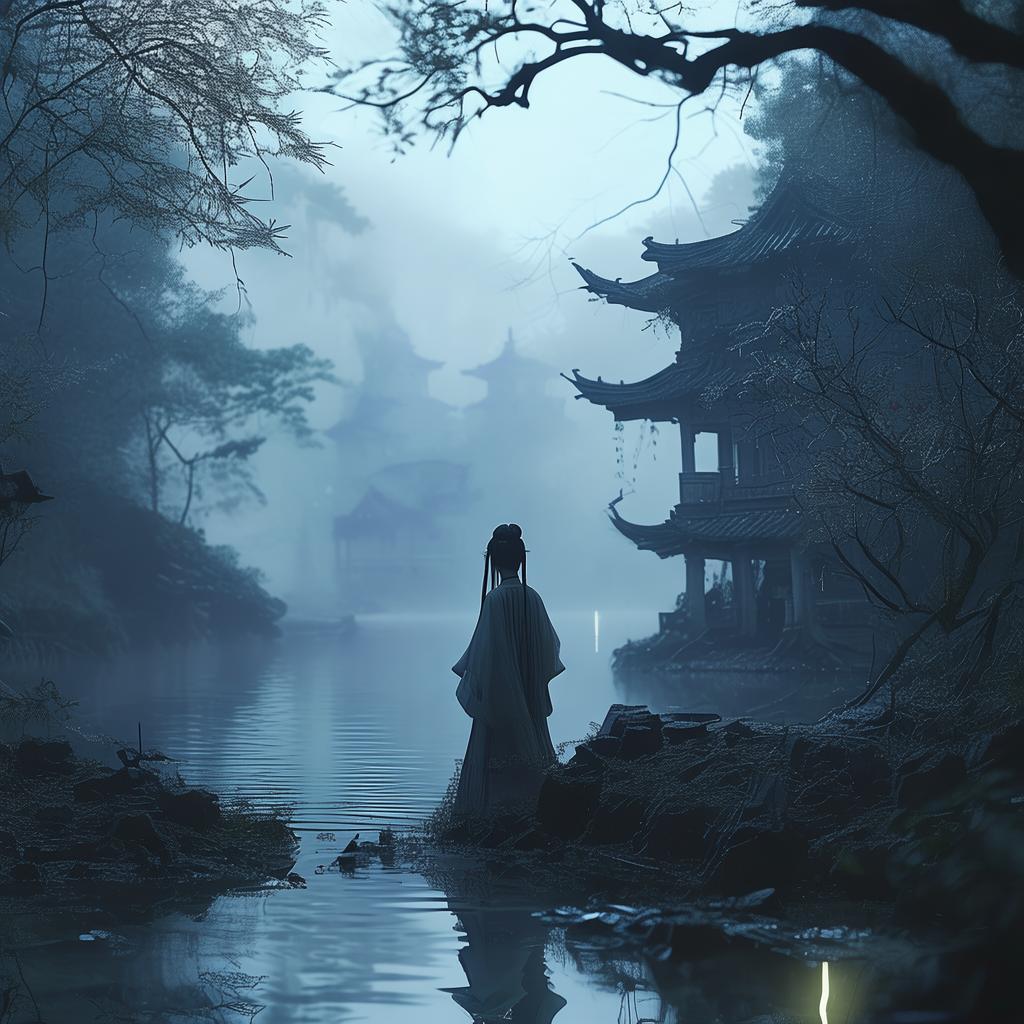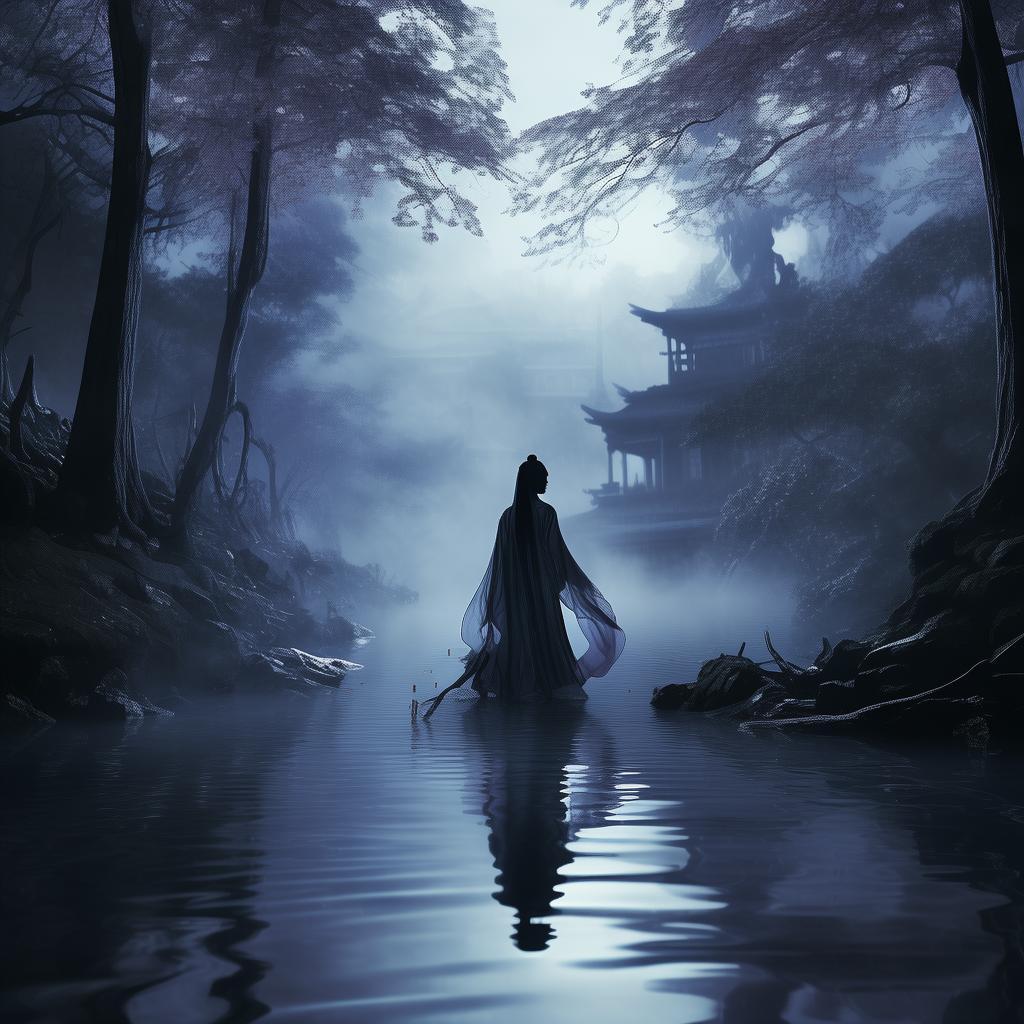The Labyrinth of Echoes: A Liao Zhai Paradox
The moon hung low, casting an ethereal glow over the ancient town of Liao Zhai. In the heart of this desolate place, where the veils between worlds were thin, there lived a young scholar named Li Jun. Known for his scholarly pursuits and insatiable curiosity, Li Jun had become a frequent visitor to the local teahouse, where tales of the supernatural were swapped like currency among the townsfolk.
One evening, as the tea leaves were steeped in their aromatic brew, a story was spun by an old man whose eyes held the secrets of a thousand lives. The tale of the Labyrinth of Dreams, a surreal escape from reality found in 'Liao Zhai II' Online, captured Li Jun's attention like a siren's call. It was said that one who entered this labyrinth would find themselves adrift in a dream that mirrored their deepest fears and desires.
Fuelled by the fire of his own ambition, Li Jun resolved to test the truth of the old man's tale. He spent days researching the labyrinth, seeking to uncover the path that would lead him to its heart. Finally, as the sun dipped below the horizon, casting long shadows, Li Jun stepped into the labyrinth, a small lantern in hand, its light flickering against the darkness.
The labyrinth was vast, a labyrinthine maze of twisted stone corridors and shadowy rooms. As he ventured deeper, Li Jun felt the weight of his own reality pressing down upon him, as if the labyrinth were a mirror reflecting his innermost thoughts and fears. In one room, he saw his own mother, aging before his eyes, her face etched with sorrow for his choices. In another, his father, a once-vibrant man, now a mere specter of his former self, haunted by the past.
Li Jun's journey through the labyrinth became a quest for the truth, a quest that would lead him to confront his deepest regrets and desires. He met spirits that were both benevolent and malevolent, each with their own story to tell, their own dream to share. In the presence of these spirits, Li Jun learned that the labyrinth was not just a place of reflection but a crucible of transformation.
One such spirit, an ancient warrior whose armor was forged from the bones of dragons, offered Li Jun a riddle that would test the depth of his resolve. "In this labyrinth, time stands still," the warrior said. "Answer this riddle, and you shall find your way out."
Li Jun, a man of letters rather than battle, struggled to understand the implications of the riddle. "What is the one thing that does not change, yet is always evolving?" he asked.

The warrior smiled, revealing a set of jagged teeth. "It is your mind, young scholar. Your mind is your constant companion, changing with every thought and emotion, yet it is the one thing that remains the same."
Li Jun's mind raced, seeking the answer. He realized that the labyrinth was not just a place of physical escape, but a metaphor for the human condition—a journey through the maze of one's own mind, where the true path lay in self-discovery and acceptance.
As he reached the center of the labyrinth, the walls around him crumbled away, revealing a vast void, the sky visible above. Li Jun, standing at the threshold of this void, felt a sense of clarity and peace he had never known. He understood that the labyrinth was a reflection of his own journey, a quest to understand the essence of reality and the nature of his own dreams.
With a deep breath, Li Jun stepped into the void, his lantern's light illuminating the path ahead. He had found the true path, not in the labyrinth's stone corridors, but in the labyrinth of his own mind. And as he ventured forth, he knew that the labyrinth would continue to change, just as he and his reality would change with time.
In the end, Li Jun emerged from the labyrinth not as the same man who had entered it, but as a man who had transcended his own reality, free from the constraints of his past and open to the infinite possibilities of his future.
The Labyrinth of Echoes: A Liao Zhai Paradox was not just a story; it was a testament to the power of self-discovery, a reminder that the true journey lies not in the external world, but within the depths of the human soul.
✨ Original Statement ✨
All articles published on this website (including but not limited to text, images, videos, and other content) are original or authorized for reposting and are protected by relevant laws. Without the explicit written permission of this website, no individual or organization may copy, modify, repost, or use the content for commercial purposes.
If you need to quote or cooperate, please contact this site for authorization. We reserve the right to pursue legal responsibility for any unauthorized use.
Hereby declared.









